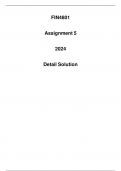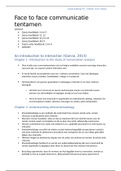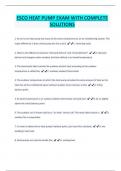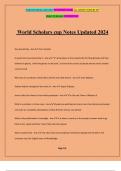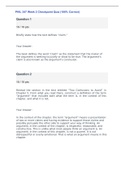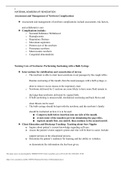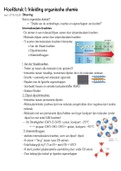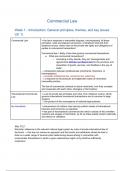Exam (elaborations)
FIN4801 Assignment 5 2024 (Detailed solution)
- Course
- Institution
- Book
Question 1 (40 Marks) (Capital structure decision making, learning units 7, 13 and 14) Read the following case and then answer the required section below the case: Offices Ltd. is a construction company focused on office space, which in the past had a large market capitalisation and turnover,...
[Show more]
